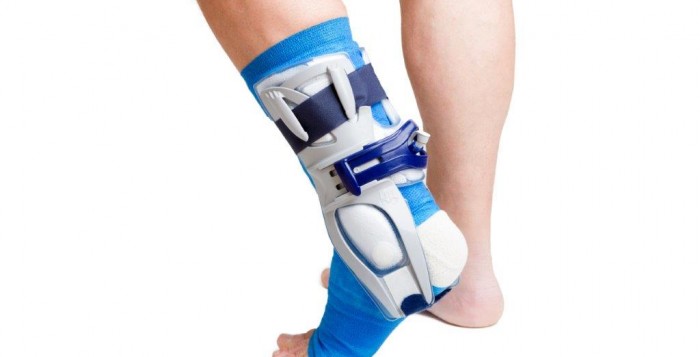Melissa Dehoff
CMS Call to Focus on Standardized Patient Assessment Project
The Centers for Medicare and Medicaid Services (CMS) recently announced a Medicare Learning Network (MLN) call that will focus on the Standardized Patient Assessment Data Collection Project. The call has been scheduled for Wednesday, March 29, 2017, from 1:30 pm to 3:00 pm EDT
During the call, information will be shared about the efforts to develop, implement, and maintain standardized Post-Acute Care (PAC) patient assessment data, including pilot testing results and plans for an upcoming national field test. Additional agenda topics include:
- Goal of the Improving Medicare Post-Acute Care Transformation Act of 2014 (IMPACT Act);
- Timeline of activities;
- Alpha 1 results;
- Alpha 2 progress;
- Plans for beta test; and
- How to get involved.
The IMPACT Act requires the reporting of standardized patient assessment data by PAC providers, including inpatient rehabilitation facilities (IRFs), skilled nursing facilities (SNFs), home health agencies (HHAs), and long-term care hospitals (LTCHs).
To register for the call, please visit the MLN Registration page.
Proposed Rule Could Impact Payment & Requirements for Prosthetics/Orthotics
On January 12, 2017, the Centers for Medicare and Medicaid Services (CMS) published in the Federal Register a proposed rule on requirements for qualified practitioners/suppliers for prosthetics and orthotics that interprets Section 427 of the Benefits Improvement and Protection Act (BIPA) of 2000. Some of the provisions included in this proposed rule include:
- Qualifications required for practitioners to furnish and fabricate, and qualified suppliers to fabricate prosthetics and custom-fabricated orthotics;
- The accreditation requirement that qualified suppliers must meet in order to bill for prosthetics and custom-fabricated orthotics;
- The timeframe in which qualified practitioners and qualified suppliers must meet applicable licensure, certification, and accreditation requirements;
- The requirements that an organization must meet in order to accredit qualified suppliers to bill for prosthetics and custom-fabricated orthotics;
- Removal of the current exemption from accreditation and quality standards for certain practitioners and suppliers; and
- The sanction for submitted claims for payment of custom-fabricated orthotics or prosthetics without the required qualifications.
Essentially, the proposed rule would require physical therapists and occupational therapists to meet the Durable Medical Equipment, Prosthetics/Orthotics, and Supplies (DMEPOS) quality and accreditations when they furnish and fabricate prosthetics or custom orthotics under the Medicare program. Additionally, therapists who furnish and fabricate custom orthoses must be licensed by the state (as a qualified provider of prosthetics and custom orthotics), or certified by the American Board for Certification in Orthotics and Prosthetics or by the Board for Orthotists/Prosthetists Certification.
Comments on this proposed rule are due by Monday, March 13, 2017.
The American Society of Hand Therapists (ASHT) has developed a detailed summary of this proposed rule, as well as a sample letter that members can reference to pull relevant facts when developing comment letters in response to this proposed rule.
Regulatory Freeze Delays Bundled Payment Final Rule
The Centers for Medicare and Medicaid Services (CMS) published a final rule; delay of effective date notice in the February 17, 2017 Federal Register that delays the effective date of the rule, “Advancing Care Coordination Through Episode Payment Models (EPMs); Cardiac Rehabilitation Incentive Payment Model; and Changes to the Comprehensive Care for Joint Replacement (CJR) model.” This notice clarifies that, in accordance with the White House’s regulatory freeze, provisions of CMS’ bundled payment final rule that were to become effective on February 18, 2017, are now delayed until March 21, 2017.
NHSN Data Submission Deadline Extended for IRF QRP
The Centers for Medicare and Medicaid Services (CMS) recently announced that due to system issues, the February submission deadline for the inpatient rehabilitation facility (IRF) quality reporting program (QRP) data submitted via the Centers for Disease Control and Prevention (CDC) National Health and Safety Network (NHSN) has been extended to May 15, 2017.
The deadline has been extended for the following IRF quality reporting programs, measures, and reporting programs:
May 15, 2017 IRF QRP for Quarter 3 2016
- CDC NHSN Healthcare-Associated Infection (HAI) Measures for quarter 3 2016
- Catheter-associated Urinary Tract Infection (CAUTI)
- Methicillin-resistant Staphylococcus aureus (MRSA)
- Clostridium difficile Infection (CDI)
CMS is granting this extension to provide facilities additional time to submit quality reporting data and run applicable reports to ensure accurate submission. For further assistance regarding the IRF & long-term care hospitals (LTCH) quality reporting programs and policy information, visit the IRF Quality Reporting Data Submission Deadlines web page.
Approved OBRA Waiver Amendments
The Department of Human Services (DHS) has announced the recent changes to the OBRA Waiver that have been approved by the Centers for Medicare and Medicaid Services (CMS). Some of the waiver amendments include:
- Adds five new employment-related service definitions that are replacing two existing employment service definitions. Five employment services have been added (benefits counseling, career assessment, employment skills development, job coaching, and job finding) (C-1/C-3).
- Corrects the regulatory citation for an Outpatient or Community-Based Rehabilitation Agency provider type in the Occupational Therapy (OT), Physical Therapy (PT), Speech and Language Therapy (SLP) service definitions (C-1/C-3).
- Clarifies that Personal Assistance Services (PAS) are only available to individuals in the waiver 21 years of age and over. All medically necessary Personal Assistance Services for children under age 21 are covered in the state plan pursuant to the Early and Periodic Screening, Diagnostic, and Treatment (EPSDT) benefit (C-1/C-3).
The complete service definitions and requirements are now included in an updated OBRA Waiver document. The effective date of these changes is February 1, 2017.
The OBRA Waiver PROPOSED rates for the new Employment Services have also been released. Questions regarding these rates should be directed to (717) 783-8412.
Upcoming Call to Focus on IMPACT Act in 2017
On February 23, 2017, from 1:30 pm to 3:00 pm, the Centers for Medicare and Medicaid Services (CMS) will host a call, “Looking Ahead: The IMPACT Act in 2017,” focusing on the Improving Medicare Post-Acute Care Transformation (IMPACT Act) of 2014. The IMPACT Act requires the reporting of standardized patient assessment data by post-acute care (PAC) providers, including inpatient rehabilitation facilities (IRFs), skilled nursing facilities (SNFs), home health agencies (HHAs), and long-term care hospitals (LTCHs). Agenda topics during this call will include the requirements, goals, progress to date, and key milestones for 2017. CMS will also convene a question and answer session following the presentation. To participate in the call, registration is required.
Free Training Programs Offered by Northampton Community College
Northampton Community College is offering free statewide training for personal care home staff and administrators, as well as staff licensed agencies serving individuals with intellectual disabilities. The classes will be held in four regions throughout the state: Northeast, West, Southeast, and Central PA. The training is funded by the Department of Human Services (DHS) and each continuing education class is equal to three annual training hours.
The course descriptions and registration information is available on the Northampton Community College website. Registration is required for attendance and can be completed online or by calling 877-543-0998.
Final Rule on Changes to Medicare Appeals Process Published
On January 17, 2017, the Centers for Medicare and Medicaid Services (CMS) published the final rule in the Federal Register that finalizes changes to the Medicare benefit claim appeals processes that were proposed on July 5, 2016. This final rule is part of the Department of Health and Human Services (HHS) approach for addressing the increasing number of appeals and the current backlog of claims waiting to be adjudicated. This final rule includes new and revised rules that expand the pool of available Office of Medicare Hearings and Appeals (OMHA) adjudicators; increase decision-making consistency among the levels of appeal; and improve efficiency by streamlining the appeals process so less time is spent by adjudicators and parties on repetitive issues and procedural matters. These regulations become effective on March 20, 2017.
National Provider Call Focuses on Coding of Therapy Minutes
The Centers for Medicare and Medicaid Services (CMS) conducted a national provider call on January 12, 2017, that focused on therapy information data collection for the inpatient rehabilitation facility patient assessment instrument (IRF-PAI). The therapy information section on the IRF-PAI was finalized in the fiscal year (FY) 2015 IRF prospective payment system (PPS) final rule. The call included a review of examples of each type of therapy and how to accurately code and complete the therapy information section on the IRF-PAI. To assist with the call, CMS utilized a PowerPoint presentation for providers to refer to. The written transcript and audio recording of the national provider call will be posted in approximately two weeks.
















